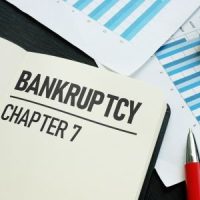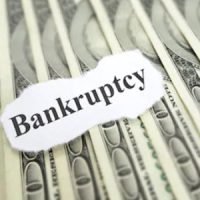Recent Blog Posts

Top Five Reasons People File Bankruptcy
In a nutshell, most people file bankruptcy because they owe more money than they can repay and they need a fresh start. As outlined below, the specific reasons most people file bankruptcy are at least mostly beyond their control. Everyone files bankruptcy to take advantage of the benefits of this program, such as the… Read More »

Benefits of Bankruptcy: Chapter 7
The biggest benefit of Chapter 7 bankruptcy is a fresh start. The financial storms of life, such as divorce, death in the family, and high medical bills, strike everyone from time to time. Most families live from hand to mouth. Therefore, even a temporary income disruption is usually devastating. A fresh start, which includes… Read More »

Reducing Debt Without Filing Bankruptcy
Usually, bankruptcy is hands-down the best way to reduce debt. Chapter 7 and Chapter 13 quickly reduce debt with a minimal long-term effect on a credit score. However, bankruptcy isn’t the best debt-reduction option in all cases. In many cases, reducing debt without filing for bankruptcy is entirely possible, and many people successfully regain… Read More »

Chapter 7 and Chapter 13: A Quick Comparison
Both forms of consumer bankruptcy offer distressed debtors a fresh start. As outlined below, Chapter 7 and Chapter 13 have many other things in common as well. However, some significant differences exist, mostly with regard to the type of debt addressed (secured or unsecured). A Chicago bankruptcy lawyer does much more than fill out… Read More »

Does Bankruptcy Wipe Out Back Taxes?
Yes, bankruptcy wipes out back taxes. Taxes are unsecured debts, like credit cards and medical bills. The taxpayer simply promises to pay these debts. The taxpayer doesn’t put up any security, like a house or car. However, under the Bankruptcy Code, back taxes are priority unsecured debts. So, they’re only dischargeable in certain situations…. Read More »

What is Debt Settlement?
Debt settlement is an uncertain process that’s ideal for debtors with severe bankruptcy phobia. Many debtors refuse to consider bankruptcy as a solution to severe financial problems, just like some people refuse to climb on ladders (acrophobic), go into small spaces (claustrophobic), or are afraid of Santa Claus. Debt settlement produces results in some… Read More »

Should I File Bankruptcy to Avoid Foreclosure?
It’s a close call, but you should file bankruptcy to avoid foreclosure, for the reasons outlined below. Based on the statistics, many people erroneously believe the opposite is true. Since 2005, the bankruptcy filing rate has plummeted and the foreclosure rate has gone through the roof. In fairness, both bankruptcy and foreclosure have some… Read More »

Chapter 7 Bankruptcy and Government Benefits: A Primer
Social Security, workers’ compensation, VA disability, and other government benefits are essential to the fresh start the Bankruptcy Code guarantees. Many families depend almost exclusively on government benefits to pay bills and they have no employment or other options. So, if a bankruptcy or other court takes away government benefits, it essentially takes away… Read More »

How Does Bankruptcy Affect My Security Clearance?
Bankruptcy discrimination, or making decisions based on a bankruptcy filing, is illegal. However, some financial problems are a legitimate concern. But the financial problems that cause bankruptcy filings rarely fall into this category. Furthermore, when debtors face their financial issues and file bankruptcy, good things normally happen, especially in terms of a security clearance…. Read More »

Overcoming Emotional Barriers in a Gray Bankruptcy
Overall, the biggest emotional barriers in these cases may be bankruptcy phobia. Many debtors, especially debtors over 55 (gray bankruptcy), have an irrational fear of bankruptcy. This legitimate and debilitating condition often prevents people from seeking the financial help they need and deserve. A Chicago bankruptcy lawyer is more than an advocate. A lawyer… Read More »
